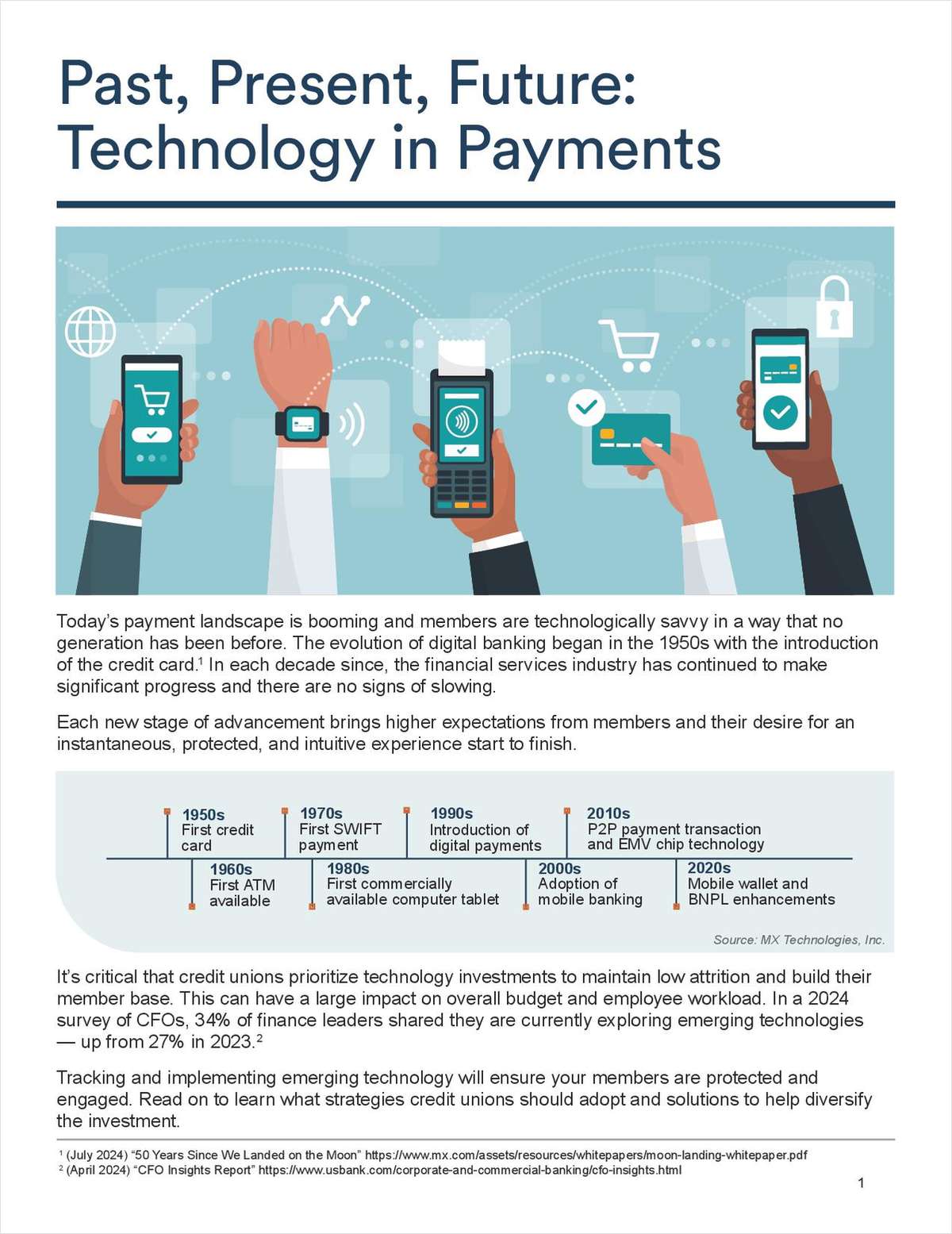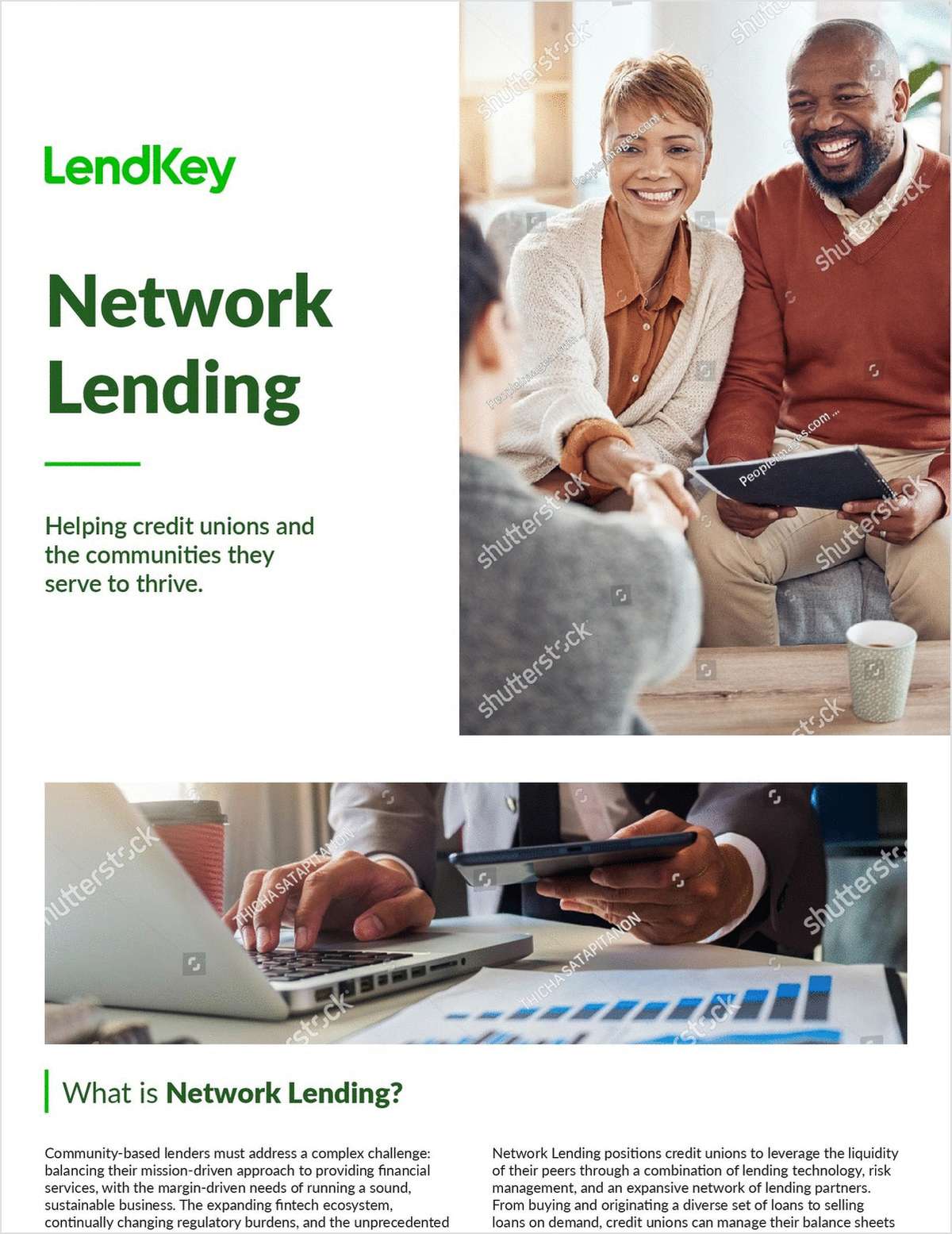SAN DIEGO - What worked in the mortgage refi market doesn't always work in the emerging mortgage purchase market, as many credit unions are learning. A new market means new rules that require new products to be competitive, and First Future CU has found the best way to do that successfully in the high-priced San Diego market is by joining CU Members Mortgage. CU Members Mortgage, headquartered in Dallas, Texas, is the credit union division of financial services firm Colonial Savings F.A. The company currently has relations with more than 500 CUs throughout the U.S. Like most credit unions involved with mortgage lending, First Future CU - formerly known as Santel FCU before it merged with Kearney Mesa Financial CU and changed its name and converted to a state charter in 2001 - saw its volume of loan origination steadily fall off throughout 2004. In the second quarter of the year, for example, the $770-million, 65,000-member CU originated $31 million in first and second loans; in the third quarter that dropped to $16 million; and by the last quarter 2004 FFCU's mortgage volume was down to $3.5 million. FFCU's mortgage penetration among members is 6.1% including loans its holding in its portfolio as well as those sold on the secondary market. FFCU's Mitzi Zarcone, VP of lending and collection points to the end of the refi boom and the price of homes in the San Diego market to explain the fall off. "The median price of homes in San Diego is $525,000 and everyone is doing jumbo loans. Other lenders including some credit unions are willing to put jumbo loans on their books but we decided not to, we decided to remain very conservative in this market and want to be sure we have enough money to make other types of loans," Zarcone explains, adding that with the prospect of rates going up, the CU didn't want to risk being left holding loans with low rates. "Members with low mortgage rates never refinance their loans, so we'd be stuck holding those loans," she says. In addition, FFCU used to sell its mortgages on the secondary market to Fannie Mae which doesn't buy jumbo loans, Zarcone explains. As of December 2004, the credit union no longer sells loans to the housing Government-Sponsored Enterprise. Throughout the U.S., credit unions have different pricing and risk strategies based on their market conditions and what their local competition is doing, Zarcone says, and FFCU decided its best option to remain competitive and be able to continue to offer its members mortgage services was to take a hard line against holding loans in its portfolio - it sells any 15 or 30 year fixed rate loan below a 7% on the secondary market - and to partner with CU Members Mortgage. Zarcone says First Future faced the fact that it didn't have the in-house expertise to offer the types of products the purchase market in the San Diego requires. "We didn't have a secondary mortgage person on staff to manage the pricing, so we couldn't take advantage of price shifts," she says. "We would have priced ourselves out of the market," adding that the credit union estimated it needed to earn 1% on every mortgage loan. So FFCU decided to take a different approach - by joining CU Members Mortgage it could offer lower cost products and gain volume. Plus CUMM facilitates selling FFCU's mortgages on the secondary market at the CU's choosing FFCU began working with CUMM in November and it already has 150 loans in the pipeline worth about $38 million. Zarcone says what sold FFCU on working with CUMM is that the company offers private labeling. Even if a member's mortgage is sole on the secondary market, their mortgage coupon has First Future CU's logo on it. In addition, when a member calls CUMM for mortgage information, they hear First Future's name, "so it's all transparent to the member," she says. What's more, CUMM visits FFCU 17 branches every quarter to train staff to take mortgage applications from members - 90% of their loans are originated by CU staff not in the loan department. The credit union also has a level 3 person at each branch who handles members' questions concerning the various mortgage products, as well as "Subject Matter Experts." Zarcone says the credit union was losing many mortgage lending opportunities before because "San Diego is a very high tech area and members are used to getting answers right away. When that doesn't happen, they take their business somewhere else." Although First Future's relationship with CUMM is only two months old, Zarcone says the CU already takes satisfaction in knowing it can offer members a variety of mortgage products to select from. Their product mix includes 15, 30 and 40-year fixed and interest only loans, conforming and jumbo, out-of-state, free rate locks and impound accounts where the CUMM collects taxes and insurance from the member for their property. First Future is also offering what's turned out to be its most popular product - a fully amortized, fixed-rate short-term loan called Termbuster that targets members nearing retirement. Zarcone says FFCU realized 40% new member growth from that in new money for mortgages members had with other lenders. The next product FFCU intends to "give a face lift" is its HELOC program. "Before we partnered with CU Members Mortgage these were lost opportunities for us. This was business that was there for us all along," says Zarcone. -
Continue Reading for Free
Register and gain access to:
- Breaking credit union news and analysis, on-site and via our newsletters and custom alerts
- Weekly Shared Accounts podcast featuring exclusive interviews with industry leaders
- Educational webcasts, white papers, and ebooks from industry thought leaders
- Critical coverage of the commercial real estate and financial advisory markets on our other ALM sites, GlobeSt.com and ThinkAdvisor.com
Already have an account? Sign In Now
© 2024 ALM Global, LLC, All Rights Reserved. Request academic re-use from www.copyright.com. All other uses, submit a request to [email protected]. For more information visit Asset & Logo Licensing.









